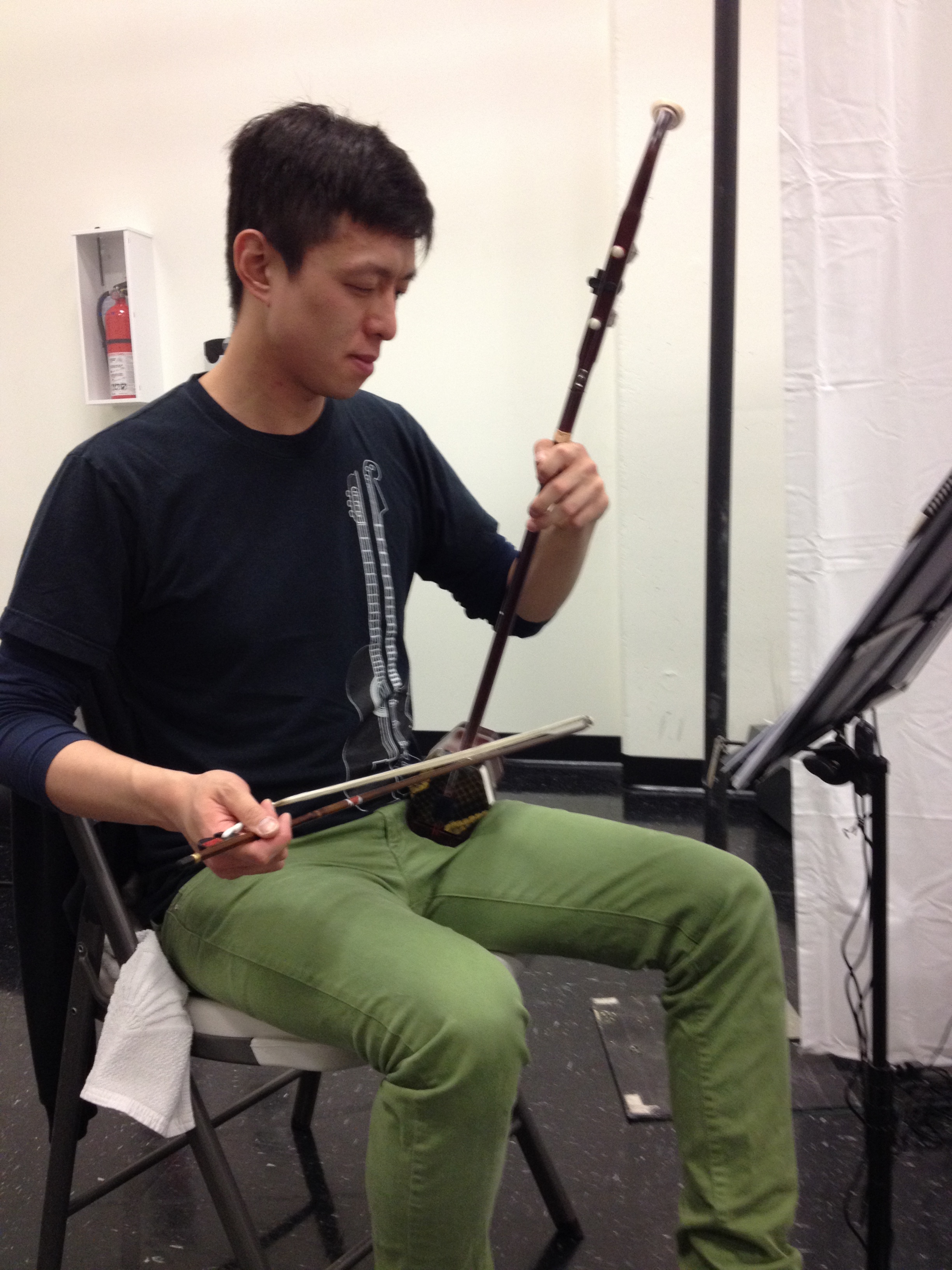After college, when I was in the throes of the corporate world and when the thought of pursuing a career as a theatre writer/composer was merely a musing, I learned about a company called TheatreWorks. As far as I could tell, TheatreWorks was one of the few theatre companies in the Bay Area dedicated to the development of new musicals. Other companies were seeking new plays and might occasionally include a musical; some explicitly stated they weren't looking for musicals at all, thank you very much. TheatreWorks stood out like a bastion of hope for me in the Bay Area, an aspiring musical writer. I had no idea how it might happen, but I knew I wanted to work on a musical there.
So, when I got the invitation from TheatreWorks' Associate Artistic Director Leslie Martinson - who is also my mentor as a result of Theatre Bay Area's Titan Award - to work on The Four Immigrants Manga project at their week-long Writers Retreat, I may have squealed a little bit (of course, I waited until after I hung up the phone call with Leslie). And, not only was I going to have the privilege of spending a week at TheatreWorks, but I was also being given an impetus to start work on my next project.
The week started off with a lovely dinner on Monday where I got to meet my fellow retreaters, as well as the TheatreWorks staff who would be helping us out during the week. I had the opportunity to have a great conversation with Artistic Director Robert Kelley, discussing what TheatreWorks was about and what kinds of shows gets Kelley excited. (Tell the ten-years-younger me that I'd be discussing musicals with the Artistic Director of TheatreWorks, and I'm sure he would have laughed with disbelief in his all-too-corporate button-down shirt and tie.) I also had the fortune of sitting next to Alex Mandel, who was collaborating with playwright Lynne Kaufman on a musical about Norman Rockwell. Nerds of different stripes have heard Alex's work as musical director of public radio show Snap Judgement, and his songs for Disney/Pixar's Brave. Alex is an altogether friendly and personable fellow who, you can tell, is passionate about his work as a composer and musician. It was fun to check in with him occasionally during the week and share thoughts about our respective projects.
Tuesday and Wednesday mainly consisted of my sitting alone in a room with a piano, my laptop, and my thoughts. After having done a decent amount of research, one of my goals for the week was to come away having solidified the tone and style of The Four Immigrants, as this would inform exactly what kind of show it was. People joked with me about cabin fever, but I didn't experience that at all. In fact, there were times when, after writing/thinking/plotting/mapping, I'd look at the time and wonder how it was already late afternoon. And then I'd realize I was hungry and then go treat myself to the unhealthiest food, telling myself that this was a "cheat-week" because I needed "thinking-fuel." (Rest assured, I am now trying to make up for my transgressions with better diet & physical activity)
The first two-and-a-half days would oscillate from exhilarating to disheartening as I toiled over whether the conceit I was pursuing for the show would actually work. So when I finally got to work with actors on Thursday afternoon, and saw that the play-universe I was constructing did indeed seem to hold up, I was on a high for a good hour-and-a-half afterwards. When the actors left, instead of plunging back into work-mode, I went for a nice celebration drive into the Belmont hills.
Friday and Saturday involved more work with actors, especially as we approached the Sunday presentation. Now, the point of the retreat is by no means simply to do a presentation. But the endpoint of a public performance of one's work is a great motivator to get somewhere on one's project, especially if there was nothing written down prior to the retreat week. With the help of the actors - both their brilliant work and insightful feedback, I was able to forge the opening moments of the show which consists of a prologue, an opening number, and a scene of dialogue. By Saturday afternoon, I felt like I had accomplished my goal of getting a tone set for the show, and I was ready for Sunday's showcase.
Sunday whizzed by in somewhat of a blur. There was excitement in the air among the writers and the actors as we rehearsed prior to the presentation. And before I knew it, the presentation had begun! As the different performances unfolded I was struck by two things. First, each project had such a unique personality and voice, and I could truly see each one having a future life on-stage. Second, I was captivated by how the actors were so adept at transforming themselves to fit the world of each piece.
It was a somewhat sad moment when I handed in "my" keys and emptied "my" room that Sunday. But overall, I came away from the week deeply grateful to have been given the opportunity to etch away at this new work. The future-life of The Four Immigrants is uncertain, and I enter back into a murky phase of development. But the show has now moved from existing in a vague cloud of ideas to having a new-found direction. Thanks to TheatreWorks for a week of letting me play and sketch and try, and for helping me to find the personality of my next musical.





